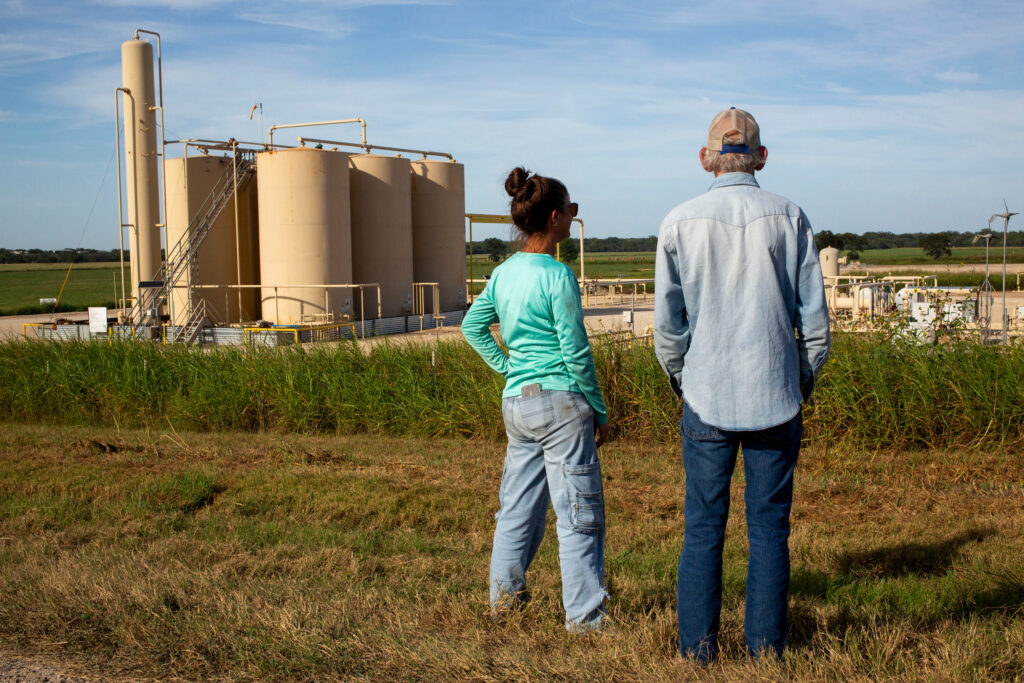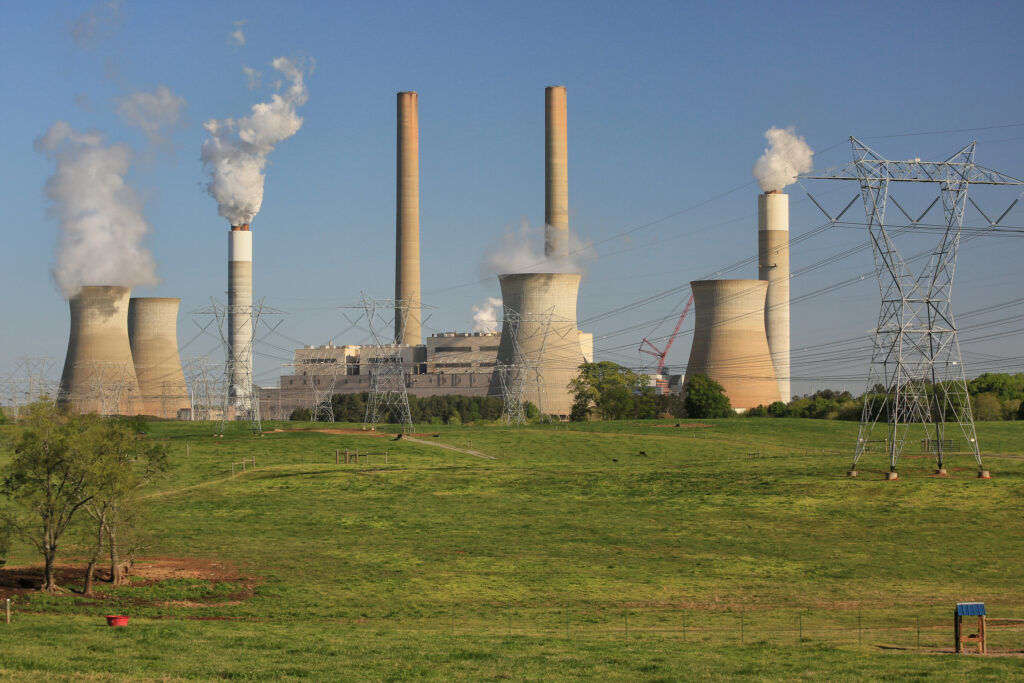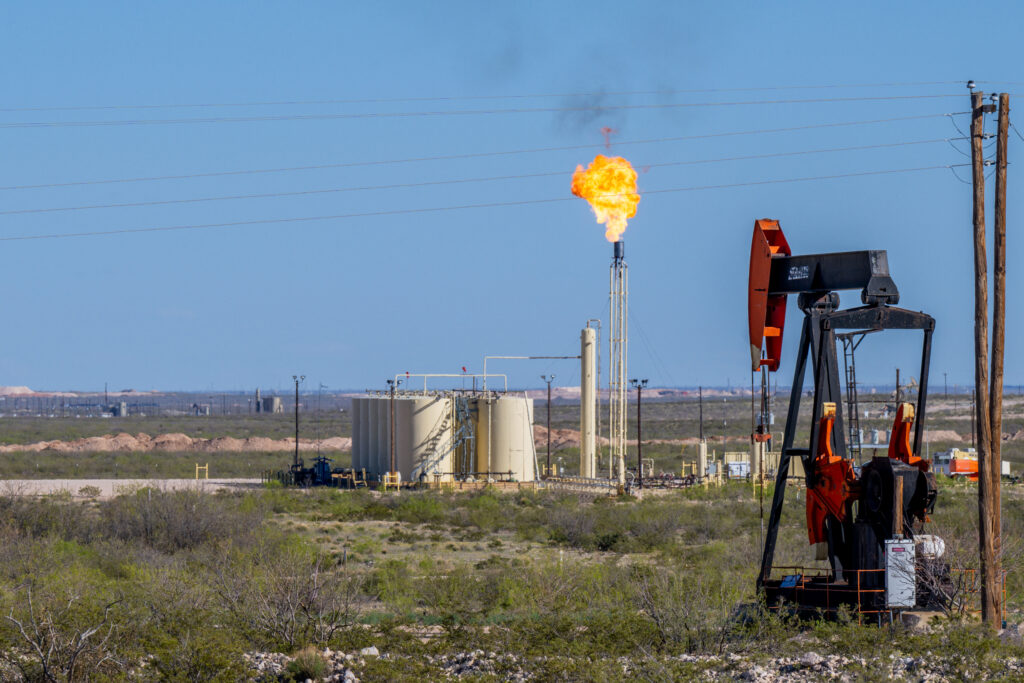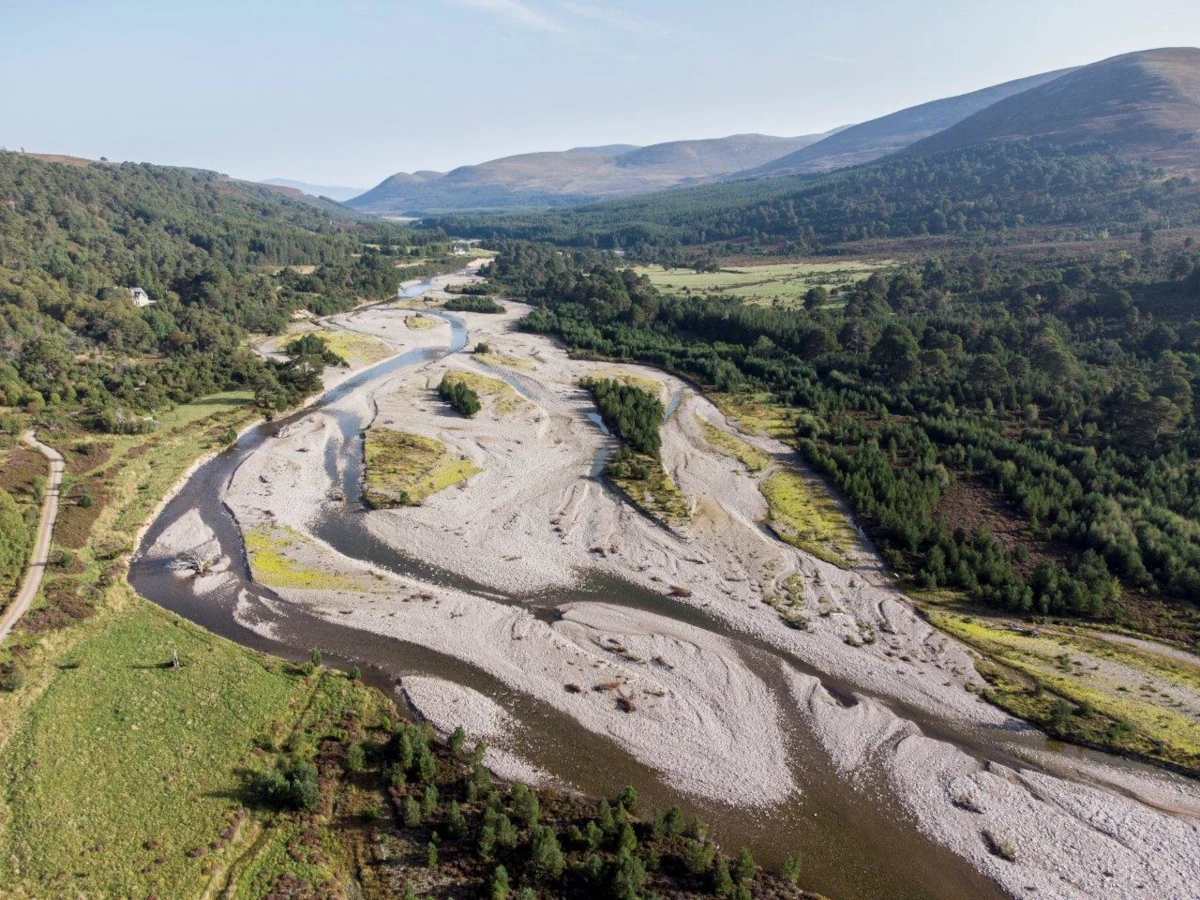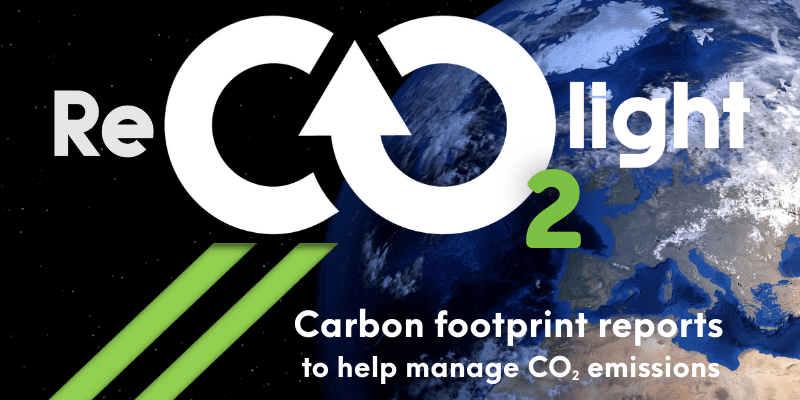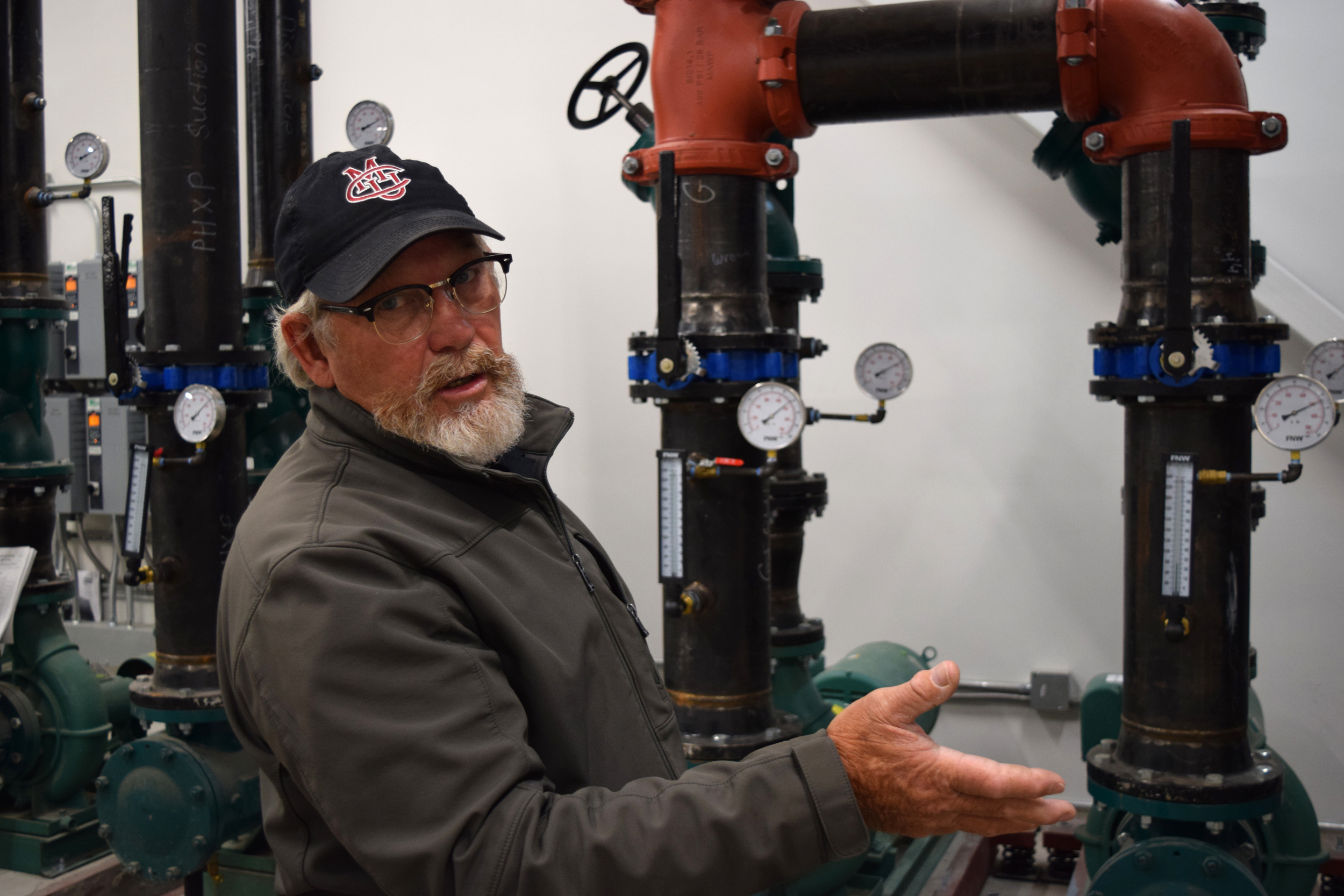The One Big Beautiful Bill Act earlier this summer underscored deep partisan divides on energy and the environment, with critics decrying it as a handout to fossil fuel interests while President Donald Trump’s supporters heralded it for securing America’s “energy dominance.”
Given the tumult over the bill’s passage, one could be forgiven for assuming that congressional Democrats would balk at working with their Republican colleagues on the GOP’s upcoming priorities.
But that’s exactly what some legislators—and key voices in the energy industry—are trying to do following the summer recess.
Their focus in the coming weeks is permitting reform, a variety of proposals to speed up the process of approving and building major infrastructure and energy projects across the nation, such as wind and solar farms, power transmission lines and fossil fuel pipelines.
The process for those approvals can stretch on for years, significantly delaying the rollout of new energy projects. According to a 2024 fact sheet from the American Clean Power Association (ACP), it currently takes an average of 4.5 years for an energy project to get the required permits needed to build, and 7.5 years for a transmission project.
Those delays impact green energy and fossil fuel industries alike, according to Xan Fishman, vice president of the Energy Program at the Bipartisan Policy Center.
“The process is neither good for businesses in the economy, nor is it good for the environment, because in order to achieve good environmental outcomes, we actually do need to build,” Fishman said.
Frank Maisano, senior principal at the lobbying firm Bracewell, echoed that sentiment.
“Whether it’s a gas pipeline, whether it’s a natural gas combined cycle plant, whether it’s a transmission line, whether it’s a solar or a wind project, it’s absurd that you should have to spend that long trying to get a permit so that you can produce power for people at a time when we need every electron we can find or get,” Maisano said.
Now, as permitting reform comes back on the agenda, an alliance of strange bedfellows is pushing more lawmakers to tackle the issue.
When Sen. John Barrasso (R-Wyo.) and then-Sen. Joe Manchin (I-W.V.) introduced the Energy Permitting Reform Act in 2024, both ACP and the American Petroleum Institute (API)—trade associations for the renewable industry and oil and gas industry, respectively—endorsed the bill as a welcome step toward meeting the growing demand for electricity and strengthening American energy security.
That bill never received a floor vote in the Senate, but there now appears to be renewed interest from the energy sector and legislators to try again.
The most significant bipartisan effort currently before Congress is the SPEED Act, introduced by Bruce Westerman (R-Ark.), chairman of the House Natural Resources Committee, and committee member Rep. Jared Golden (D-Maine).
The bill would make significant changes to how the federal government conducts environmental reviews under the National Environmental Policy Act (NEPA).
That 1970 law has been described as the bedrock of environmental law. It requires federal agencies to review and disclose the environmental impacts of major projects before permitting or funding them, providing both the government and the public the chance to examine the knock-on effects those projects could have.
According to an issue brief from the Bipartisan Policy Center, the SPEED Act proposes significant changes to NEPA’s key provisions. Among those measures, the bill limits what projects would be subject to NEPA review and the scope of those reviews; raises the bar for courts to overturn the decisions of federal agencies overseeing those reviews; and establishes a 150-day deadline to sue federal agencies over their permitting decisions—a drastic reduction from the current 6-year statute of limitations.
In a committee hearing for the bill on Wednesday, Westerman said the changes the bill proposes would bring needed reform and certainty to the permitting process. He also pointed to actions by the Trump and Biden administrations that leveraged the existing permitting process to favor certain types of energy projects.
The Trump administration has taken steps to streamline permitting for fossil fuel projects in recent months, while introducing obstacles for the siting and permitting of renewable energy projects.
Under the Biden administration, the opposite was true—officials introduced rules meant to speed up the process for renewables while adding additional hurdles for projects expected to harm the climate.
“This is an opportunity for Congress to exert their Article One authority and to create a system that doesn’t change when an administration changes,” Westerman said. “A system that’s fair, a system that allows access for all projects, and a system that’s blind to the project that is being proposed.”
Golden emphasized that improvements to NEPA would benefit all forms of energy development, including renewables.
“One top-line message against the SPEED Act is that it’s a permitting process written by and for fossil fuel polluters and extractive industries,” Golden said. “This ignores the reality that wind, solar and other clean energy projects face significant delays because of NEPA litigation.
“These problems with NEPA can cut both ways, and so too should be the solutions.”
But while that message resonated with Republicans and some Democrats in the hearing, other members—including Rep. Mike Levin (D-Calif.)—cast doubt on whether the benefits of any permitting reform bill, even a technology-neutral one, would be felt equally across the energy sector.
“I am personally deeply skeptical that we can negotiate in good faith right now to try to accelerate permitting of any kind, while there is an ongoing bad faith attack against solar and wind,” Levin said during the hearing.
That sentiment was echoed by more of Levin’s colleagues, including Rep. Emily Randall (D-Wash.), Rep. Sarah Elfreth (D-Md.), and Rep. Julia Brownley (D-Calif.), all of whom referenced the administration’s attacks on renewables as obstacles to their support for the bill.
On his first day in office, Trump issued a memorandum halting approvals, permits, leases and loans for both offshore and onshore wind projects. The administration has also taken the unusual move to issue stop-work orders for some offshore wind projects that were already fully permitted and under construction.
To some critics such as Marlyn Twitchell, senior attorney at the Western Environmental Law Center, those moves could mean that fossil fuel interests disproportionately benefit from a streamlined permitting process the SPEED Act would create, while renewables see few tangible benefits.
“Given the administration’s war on renewable energy projects, this bill would do little but SPEED the climate crisis and the fires, floods, droughts, hurricanes, and oppressive heat that have already killed so many Americans and so severely damaged our homes, public lands, and economy,” Twitchell said in a Wednesday press release.
Other environmental groups have also voiced their opposition to the bill, arguing that the act’s provisions don’t address the primary drivers of permitting delays.
“Often missing in the conversation around NEPA is the empirical research that’s been done, and there’s a lot of that out there,” said Jarryd Page, a staff attorney at the Environmental Law Institute.
This story is funded by readers like you.
Our nonprofit newsroom provides award-winning climate coverage free of charge and advertising. We rely on donations from readers like you to keep going. Please donate now to support our work.
Donate Now
That research points to resource constraints as one of the biggest roadblocks, Page said—like not having enough staff to conduct the environmental reviews, or staff lacking adequate experience and technical know-how.
Stephen Schima, senior legislative counsel at environmental law nonprofit Earthjustice, said existing legislation from the past several years had already begun to address those needs.
“We had the Inflation Reduction Act—for the first time in history, Congress actually funded the agencies themselves to the tune of a billion dollars to actually do these reviews [and] do them more quickly,” Schima said. “They made statutory changes in the Fiscal Responsibility Act that established deadlines for environmental assessments, environmental impact statements.”
However, he said that recent actions by the Trump administration and congressional Republicans threatened to undo that progress by cutting the federal workforce and clawing back the additional resources that had been provided.
“There’s been this litany of changes, and what we’ve seen on the Republican side … in the passage of [the One Big Beautiful Bill Act] is revoking that funding, rescinding the funding that was in the IRA that was actually leading to results,” Schima said.
“What we’ve seen … is a decimation of the staff and capacity at the federal agencies themselves. We need to get the staff back. We need people in the federal government to be doing these reviews and to help shepherd projects through the permitting process.”
Inside Climate News asked Westerman on Wednesday whether he would consider incorporating additional funding and staffing for federal agencies to conduct environmental reviews as part of the SPEED Act.
Westerman suggested that technological advances might allow agencies to make further cuts, instead.
“I’m having people from AI companies tell me we can cut down NEPA permitting just using AI,” he said. “So technology may get us to the point where we don’t even need as many people.”
Even if Westerman and Golden’s bill fails to garner enough support, the appetite for a bipartisan deal on permitting is unlikely to end there.
Turn Forward, a nonprofit advocating for offshore wind energy, hasn’t taken a public stance on the SPEED Act and said that achieving a bipartisan solution on permitting reform is “going to be a lift,” but executive director Hillary Bright said that she was “optimistic” about the odds of success.
And in the Senate, Environment and Public Works Committee Chairman Shelley Moore Capito (R-W.V.) and Ranking Member Sheldon Whitehouse (D-R.I.) are in the early stages of discussing another possible bipartisan bill, according to a staffer familiar with the matter.
The staffer said that those efforts won’t be able to move forward without the Senate Energy and Natural Resources Committee, but news of the collaboration prompted a positive response from key industry voices.
“It doesn’t surprise me at all,” said Maisano.
“If there’s a guy who … can rally climate activists, that can bring people together and work with the Shelley Moore Capitos and the Lisa Murkowskis of the world … I would never put it past Senator Whitehouse to be in that position to be a broker of hard issues and complex issues to make solutions possible.”
About This Story
Perhaps you noticed: This story, like all the news we publish, is free to read. That’s because Inside Climate News is a 501c3 nonprofit organization. We do not charge a subscription fee, lock our news behind a paywall, or clutter our website with ads. We make our news on climate and the environment freely available to you and anyone who wants it.
That’s not all. We also share our news for free with scores of other media organizations around the country. Many of them can’t afford to do environmental journalism of their own. We’ve built bureaus from coast to coast to report local stories, collaborate with local newsrooms and co-publish articles so that this vital work is shared as widely as possible.
Two of us launched ICN in 2007. Six years later we earned a Pulitzer Prize for National Reporting, and now we run the oldest and largest dedicated climate newsroom in the nation. We tell the story in all its complexity. We hold polluters accountable. We expose environmental injustice. We debunk misinformation. We scrutinize solutions and inspire action.
Donations from readers like you fund every aspect of what we do. If you don’t already, will you support our ongoing work, our reporting on the biggest crisis facing our planet, and help us reach even more readers in more places?
Please take a moment to make a tax-deductible donation. Every one of them makes a difference.
Thank you,




